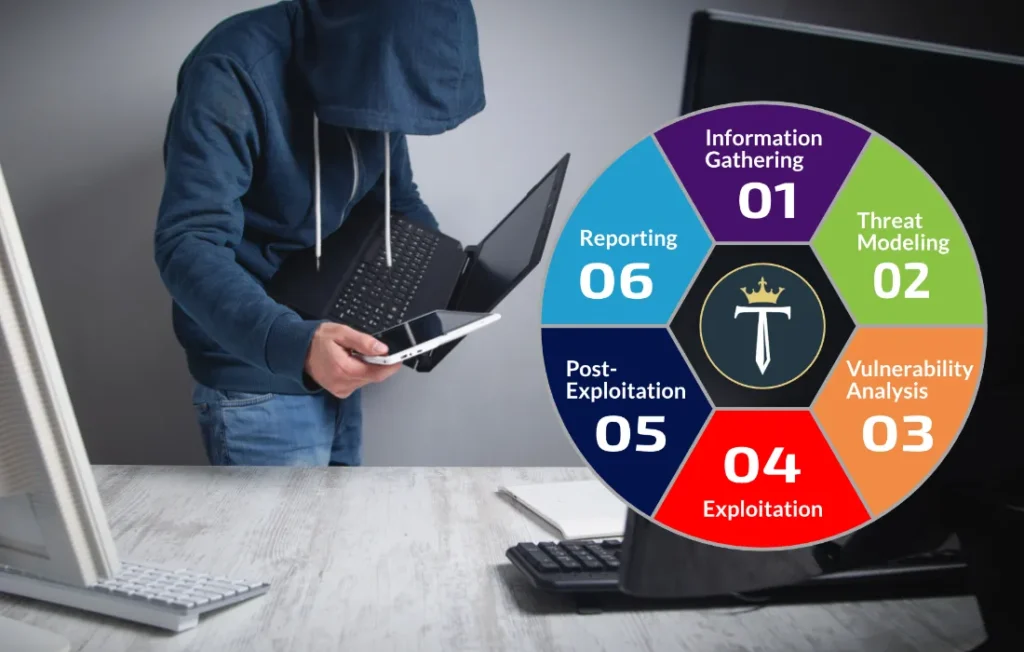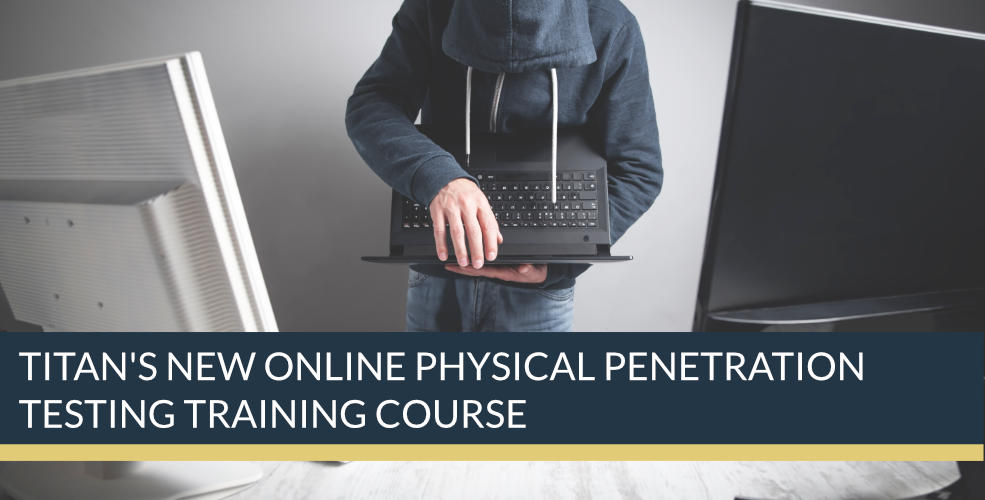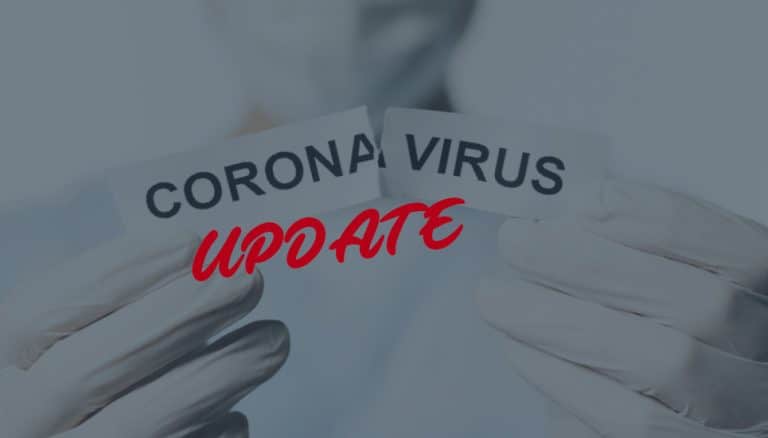Titan’s New Online Physical Penetration Testing Training Course
Comprehensive Guide to Physical Penetration Testing: Techniques, Phases, and Industry Insights
Physical security forms the cornerstone of any robust business protection strategy. Whilst digital security measures receive considerable attention, the physical vulnerabilities of premises often remain overlooked until it’s too late. Physical penetration testing serves as a proactive approach to identifying these weaknesses before malicious actors can exploit them.
Titan Private Investigation Ltd stands at the forefront of this specialised field, pioneering innovative training methodologies that bridge the gap between traditional classroom instruction and modern digital learning platforms. Our forthcoming online course represents a significant advancement in professional development for security practitioners worldwide, offering unprecedented accessibility to expert-level training.
In an era where security threats continue to evolve, comprehensive testing encompasses both digital and physical domains. The integration of in-person and online educational resources ensures that security professionals remain equipped with cutting-edge knowledge and practical skills essential for safeguarding modern enterprises.
Understanding Physical Penetration Testing
What Is Physical Penetration Testing?
Physical penetration testing represents a systematic approach to evaluating the security posture of physical premises through controlled, authorised intrusion attempts. This methodology involves security professionals deliberately attempting to breach physical barriers, circumvent access controls, and identify vulnerabilities within an organisation’s physical security infrastructure.
The primary objective centres on discovering exploitable weaknesses in doors, locks, perimeter defences, surveillance systems, and human security protocols. These assessments provide invaluable insights into how unauthorised individuals might gain access to sensitive areas, enabling organisations to implement targeted security enhancements.
Professional penetration testers employ a diverse range of techniques, from lock picking and social engineering to surveillance evasion and physical bypass methods. Each test scenario is carefully planned and executed within strict legal and ethical boundaries, ensuring that assessments provide genuine value whilst maintaining the integrity of the testing process.
The significance of physical penetration testing extends beyond mere vulnerability identification. These assessments help organisations understand their security posture from an attacker’s perspective, revealing blind spots that traditional security audits might miss. By simulating real-world attack scenarios, businesses gain practical insights into their defensive capabilities and can prioritise security investments accordingly.
The Role of Black Teaming in Security
Modern security frameworks employ various team-based approaches to evaluate and enhance defensive capabilities:
Red Team Operations: These specialists simulate adversarial activities, employing tactics, techniques, and procedures commonly used by cybercriminals and hostile actors. Red teams focus on identifying exploitable vulnerabilities across digital and physical domains.
Blue Team Defence: Defensive specialists responsible for monitoring, detecting, and responding to security incidents. Blue teams work continuously to strengthen organisational defences and improve incident response capabilities.
Purple Team Collaboration: This hybrid approach combines red and blue team methodologies, fostering collaborative environments where offensive and defensive specialists share knowledge and improve overall security posture through joint exercises.
Black Team Operations: The covert specialists who conduct actual penetration testing activities. Black teams operate with minimal visibility, simulating genuine threat actor behaviour whilst maintaining strict operational security protocols.
Leading retailers and corporations increasingly recognise the value of comprehensive security testing. These organisations understand that effective security requires continuous evaluation and improvement, making regular penetration testing an essential component of their risk management strategies.

The Six Phases of a Physical Penetration Test
Phase 1: Information Gathering (Passive Reconnaissance)
The initial phase involves comprehensive intelligence collection without alerting target personnel or security systems. This passive approach ensures that subsequent testing phases remain uncompromised whilst gathering essential operational intelligence.
Reconnaissance activities include studying architectural plans, reviewing publicly available information, observing personnel patterns, and identifying potential entry points. Testers analyse building layouts, security camera positions, guard patrol schedules, and employee access patterns to develop comprehensive target profiles.
Advanced reconnaissance techniques involve studying social media profiles of key personnel, reviewing corporate websites for organisational structure information, and conducting discreet physical surveillance to understand operational rhythms. This intelligence forms the foundation for all subsequent testing phases.
Phase 2: Threat Modelling
Following intelligence gathering, testers develop comprehensive threat models that identify the most probable attack vectors and prioritise testing objectives based on organisational risk profiles.
Threat modelling considers various attacker profiles, from opportunistic criminals to sophisticated state-sponsored actors. Each threat category requires different approaches and capabilities, influencing the testing methodology and success criteria.
Risk assessment frameworks help prioritise testing activities, ensuring that limited resources focus on the most critical vulnerabilities. This systematic approach maximises the value of penetration testing whilst providing actionable intelligence for security improvements.
Phase 3: Vulnerability Analysis (Active Reconnaissance)
Active reconnaissance involves direct interaction with target systems and infrastructure whilst maintaining operational security. This phase includes testing physical barriers, evaluating access control systems, and assessing surveillance capabilities.
Testers employ specialised tools and techniques to evaluate lock mechanisms, test alarm systems, and identify surveillance blind spots. Each assessment activity is carefully documented to support subsequent reporting and remediation activities.
Safety protocols and legal compliance remain paramount throughout active reconnaissance. All testing activities must comply with agreed-upon rules of engagement and maintain appropriate safety margins to prevent accidental damage or security incidents.
Phase 4: Exploitation
The exploitation phase involves actual attempts to breach identified vulnerabilities using approved techniques and tools. This critical phase demonstrates the practical impact of discovered weaknesses whilst maintaining strict ethical boundaries.
Successful exploitation attempts provide concrete evidence of security gaps, enabling organisations to understand the real-world implications of identified vulnerabilities. Each successful breach is carefully documented to support remediation planning and security enhancement initiatives.
Professional testers employ a wide range of techniques, from traditional lock picking to advanced social engineering approaches. The selection of appropriate techniques depends on the specific testing objectives and the organisation’s risk tolerance.
Phase 5: Post-Exploitation
Following successful access, testers assess the potential impact of unauthorised presence within secured areas. This phase evaluates what sensitive information or systems an attacker might access and the potential consequences of such access.
Post-exploitation activities include documenting accessible areas, identifying sensitive information, and evaluating the potential for lateral movement within the facility. These assessments help organisations understand the full scope of potential security breaches.
The post-exploitation phase also considers the detectability of intrusion activities, evaluating how long an unauthorised presence might remain undetected and what additional security measures might prevent or limit such access.
Phase 6: Report Writing
Comprehensive reporting represents the culmination of the penetration testing process, providing organisations with detailed findings, risk assessments, and actionable remediation recommendations.
Professional reports include executive summaries for senior management, technical details for security teams, and prioritised remediation roadmaps that align with organisational risk tolerance and resource constraints.
Effective reporting communicates complex technical findings in accessible language whilst providing sufficient detail to support informed decision-making and effective remediation planning.
Developing Skills and Training for Physical Penetration Testing
In-Person vs. Online Learning Approaches
Titan Private Investigation Ltd’s established 2-day intensive course in Derby has set industry standards for hands-on physical penetration testing training. This comprehensive programme combines theoretical knowledge with practical exercises, providing participants with immediate experience in controlled environments.
Our innovative online course development represents a significant advancement in professional security education. This digital platform extends our expertise to a global audience, breaking down geographical barriers that previously limited access to specialised training.
The online format offers unprecedented flexibility, allowing security professionals to progress at their own pace whilst maintaining full-time employment commitments. Interactive modules, video demonstrations, and virtual simulations provide engaging learning experiences that rival traditional classroom instruction.
Comprehensive Online Course Content
Our forthcoming online programme encompasses all six phases of physical penetration testing, featuring professionally filmed demonstrations, real-world case studies, and interactive assessment tools.
Students gain access to extensive video libraries showcasing various penetration techniques, from basic lock manipulation to advanced social engineering scenarios. Each module includes practical exercises designed to reinforce theoretical concepts and build practical skills.
The course structure accommodates various learning styles and professional backgrounds, ensuring that both novice and experienced security practitioners can benefit from the comprehensive curriculum.
Professional Preparation Strategies
Successful physical penetration testing requires diverse skills and knowledge areas. Aspiring practitioners should develop understanding of mechanical security systems, electronic access controls, and human psychology factors that influence security effectiveness.
Legal knowledge represents a critical component of professional preparation. Practitioners must understand the legal frameworks governing penetration testing activities and ensure all assessments comply with applicable regulations and contractual obligations.
Technical skills development should include familiarity with common security tools, lock picking techniques, and surveillance evasion methods. However, ethical considerations and professional conduct remain paramount throughout all training activities.
Industry Examples and Real-World Applications
Contemporary Security Challenges
Modern organisations face increasingly sophisticated physical security threats. Recent incidents demonstrate how attackers combine traditional techniques with advanced technology to bypass conventional security measures.
Corporate espionage cases highlight the importance of comprehensive physical security assessments. Attackers often target physical access points as the path of least resistance, bypassing sophisticated digital security measures through simple physical intrusion.
Critical infrastructure protection requires specialised approaches that consider both traditional security threats and emerging risks associated with technological advancement and geopolitical tensions.
Case Study Applications
Financial institutions regularly employ physical penetration testing to evaluate branch security and data centre protection measures. These assessments help identify vulnerabilities that could compromise customer data or financial systems.
Healthcare organisations utilise physical security testing to protect patient information and ensure compliance with regulatory requirements. Physical access to medical records and systems represents a significant privacy and security risk.
Government facilities require specialised testing approaches that consider national security implications and classified information protection requirements. These assessments often involve multi-layered security evaluations and comprehensive threat modelling.
The Future of Physical Security Testing
Technological Integration
Emerging technologies continue to reshape physical security landscapes. Internet of Things (IoT) devices, artificial intelligence-powered surveillance systems, and biometric access controls create new opportunities and challenges for security professionals.
Drone technology offers innovative approaches to perimeter assessment and surveillance evaluation. These tools enable testers to assess previously inaccessible areas whilst maintaining operational security and safety protocols.
Advanced simulation technologies provide new training opportunities, allowing practitioners to experience diverse scenarios without the logistical challenges and costs associated with physical testing environments.
Industry Evolution
The physical penetration testing industry continues to mature, with increasing recognition of its value among senior executives and risk management professionals. This growing awareness drives demand for qualified practitioners and comprehensive training programmes.
Professional certification programmes are emerging to standardise industry practices and ensure consistent quality across service providers. These developments support the professionalisation of physical security testing and enhance client confidence in service quality.
International collaboration and knowledge sharing initiatives help practitioners stay current with evolving threats and emerging best practices. Professional associations and industry conferences provide valuable networking and learning opportunities.
Professional Development and Career Opportunities
Accessing Quality Training
Titan Private Investigation Ltd’s website (Titan Surveillance Training) serves as the primary resource for accessing our comprehensive training programmes. Our online platform provides convenient registration processes and immediate access to course materials upon enrolment.
Regular webinars and workshops supplement formal course offerings, providing ongoing professional development opportunities and updates on industry trends and emerging threats.
Professional networking opportunities through our training programmes connect practitioners with industry experts and potential collaborators, fostering career development and knowledge sharing.
Building Professional Networks
Active participation in professional security communities enhances career prospects and provides access to cutting-edge knowledge and techniques. Online forums, professional associations, and industry conferences offer valuable networking opportunities.
Mentorship relationships with experienced practitioners accelerate professional development and provide guidance on career advancement strategies. These relationships often develop through training programmes and professional networking activities.
Continuous learning remains essential in the rapidly evolving security landscape. Regular participation in training updates, industry conferences, and professional development activities ensures practitioners maintain current knowledge and skills.
Physical Penetration Testing Training: Final Thoughts
Physical penetration testing represents an indispensable component of comprehensive security strategies. As threats continue to evolve and organisations become increasingly dependent on physical security measures, the demand for qualified practitioners and effective training programmes will continue to grow.
Titan Private Investigation Ltd’s commitment to innovation in security education ensures that professionals worldwide have access to the highest quality training and development opportunities. Our combination of traditional hands-on instruction and cutting-edge online learning platforms provides unparalleled flexibility and accessibility.
The future of physical security depends on well-trained professionals who understand both traditional techniques and emerging technologies. By investing in comprehensive training and continuous professional development, security practitioners can stay ahead of evolving threats and provide maximum value to their organisations.
Don’t wait for security incidents to reveal vulnerabilities in your organisation’s physical defences. Proactive testing and continuous improvement represent the most effective approaches to maintaining robust security postures in an increasingly complex threat environment. The investment in professional training and regular security assessments pays dividends in prevented incidents and enhanced organisational resilience.
Physical Penetration Testing Training: Who do I call?
For further advice and information in regard to our Physical Penetration Testing Courses, please feel free to speak to one of Titan’s training team by email, telephone, or at one of our offices nearest you.
Physical Penetration Testing in London – Call the Titan Investigations London Office 020 39046622
Physical Penetration Testing in Birmingham – Call the Titan Investigations Birmingham Office 0121 7162442
Physical Penetration Testing in Cambridge – Call the Titan Investigations Cambridge Office 01223 662022
Physical Penetration Testing in Derby – Call the Titan Investigations Derby (Head Office) 01332 504256
Physical Penetration Testing in Leeds – Call the Titan Investigations Leeds Office 0113 4574066
Physical Penetration Testing in Leicester – Call the Titan Investigations Leicester Office 0116 2436520
Physical Penetration Testing in Nottingham – Call the Titan Investigations Nottingham Office 0115 9646950
Physical Penetration Testing in Manchester – Call the Titan Investigations Manchester Office 0161 3023008
Physical Penetration Testing in Sheffield – Call the Titan Investigations Sheffield Office 0114 3499400
Physical Penetration Testing in Truro – Call the Titan Investigations Truro Office 01872 888706
Alternatively, you can contact us directly using our fully confidential contact form at enquiries@titaninvestigations.co.uk or chat directly using our Live Chat facility, and one of our UK Physical Penetration Testing Training team will get right back to you.





















